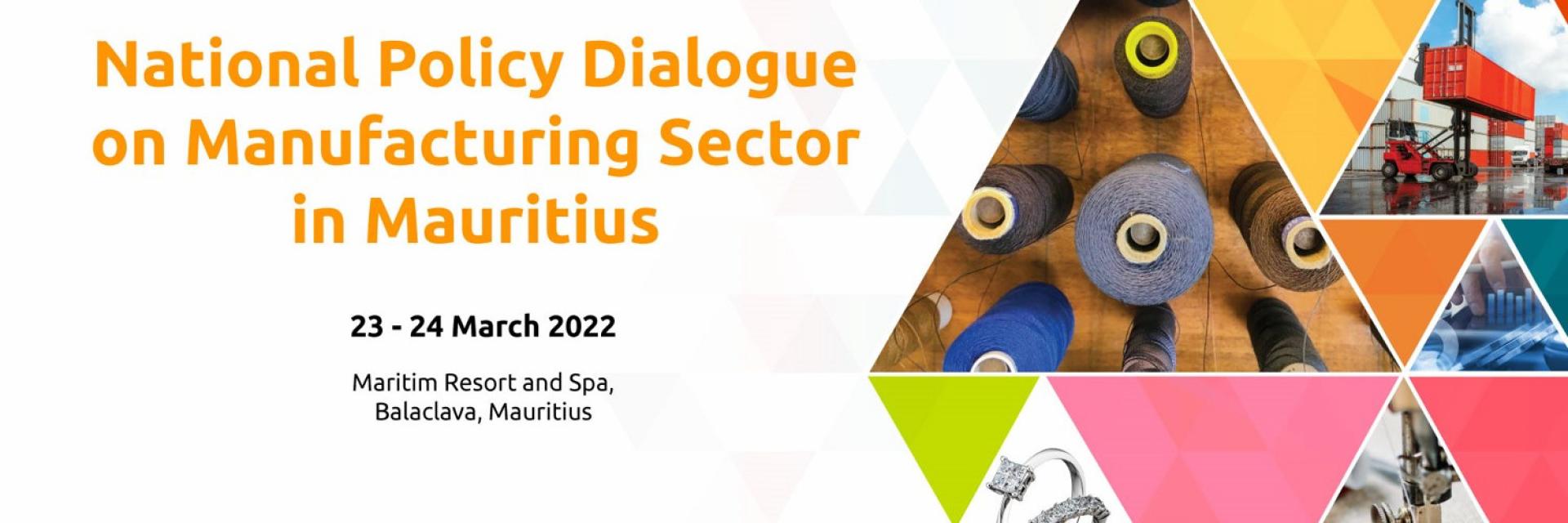The manufacturing sector, mainly comprising Micro Small and Medium-sized Enterprises (MSMEs), is one of the main engines of economic growth in Mauritius, contributing about 13.3 per cent of the Gross Value Added (GVA) of the national economy and accounting for 17 per cent of the total workforce. The sector which mostly relied on exports of textiles and clothing, has, over time, successfully diversified into sub-sectors such as fish and fish preparations, jewelry, foodstuffs, chemicals, medical devices, precision engineering and leather.
In order to instil a new dynamism and propel the sector to a higher productivity growth path, the Ministry of Industrial Development, SMEs and Cooperatives of Mauritius, in collaboration with the United Nations Conference on Trade and Development (UNCTAD), developed an Industrial Policy and Strategic Plan (2020-2025) (IPSP) for Mauritius. The IPSP charts the imperatives for a globally competitive and sustainable industrial base, and proffers 22 recommendations focusing on five pillars. These are, namely: strengthening of industrial foundations, upgrading of value chains, supporting local production, promoting regional and global exports and fostering the adoption of smart and advanced technologies related to Industry 4.0.
Implementation of the recommendations is ongoing. However, given the new challenges, and dynamics on the global scene - renewed economic disruptions with the emergence of new Covid-19 variants, supply chain disruptions, price volatility, geo-political tensions associated with the Russia-Ukraine crisis, as well as climate change - it is timely that in-depth reflection takes place to reassess the current context in which the manufacturing sector is evolving. The intent is to come up with a transformed business ecosystem for a renewed impetus and greater resilience of manufacturing enterprises in the years ahead. Such a profound reflection should among others, entail appropriate communication and sharing of information on relevant schemes and measures being provided by the Government of Mauritius for the benefit of the manufacturing sector. It also calls for a diagnosis of the challenges to, and opportunities for the manufacturing sector in the current context and beyond. In this context, particular attention must also be paid to the consolidation of the textile and apparel sub-sector in the years ahead, as it remains one of the main pillars of the Mauritian export sector after five decades.
Furthermore, it is timely and fitting for the Ministry of Industrial Development, SMEs and Cooperatives to engage in a constructive dialogue with the national private sector and international investment community to effectively flesh out the challenges of the manufacturing sector, as well as the opportunities being unleashed by new developments on the trade and investment scene, including the African Continental Free Trade Area (AfCFTA).

